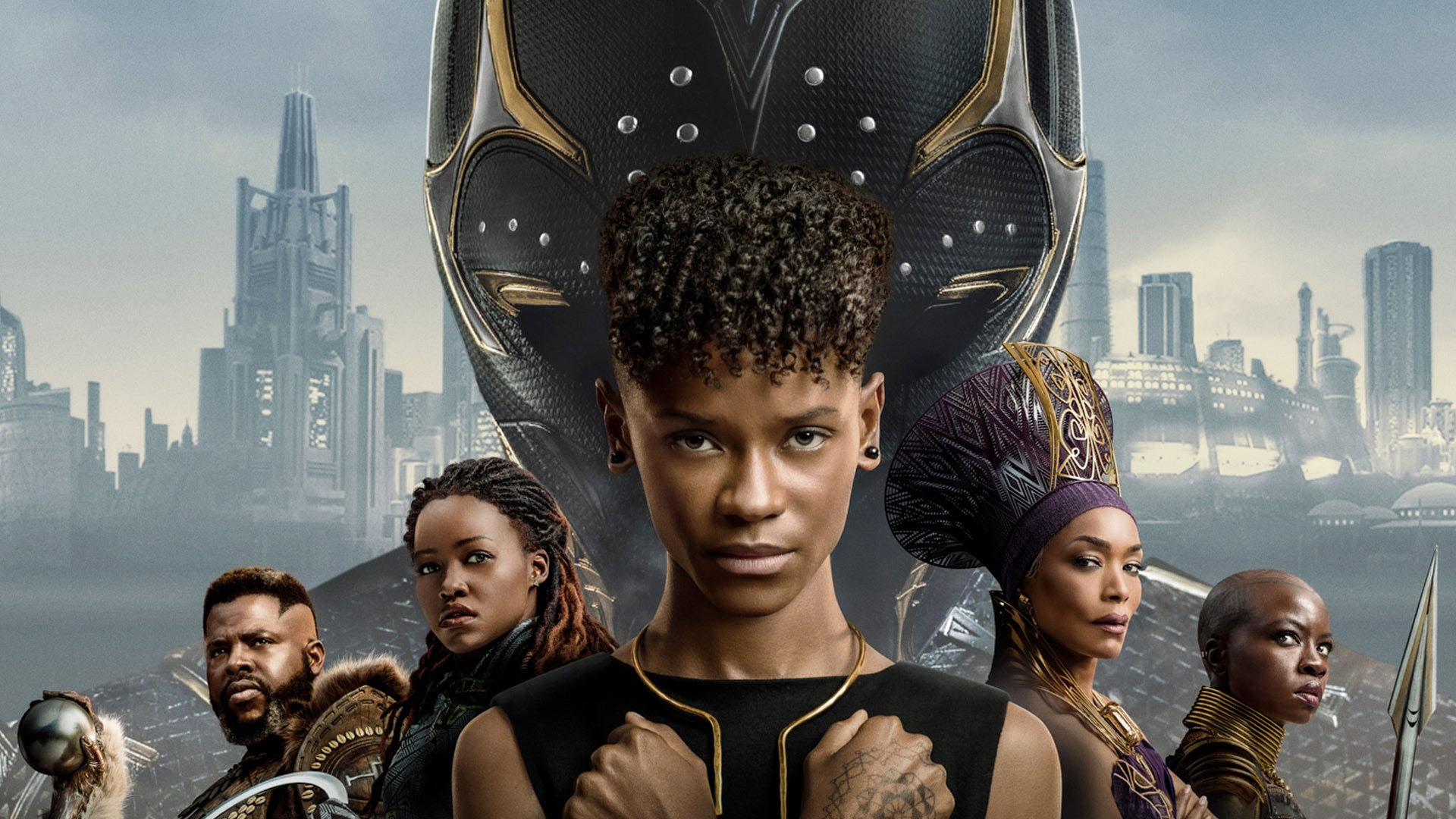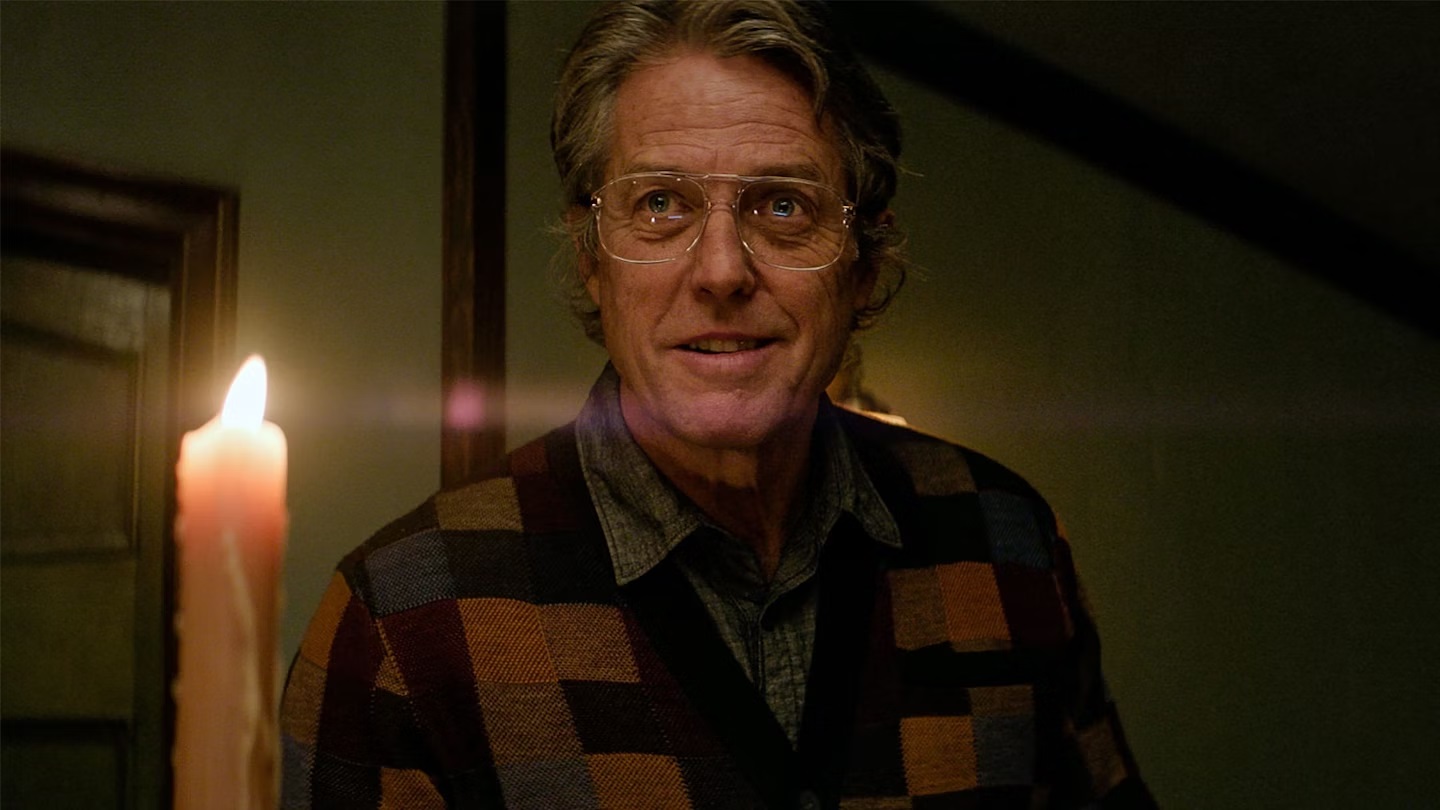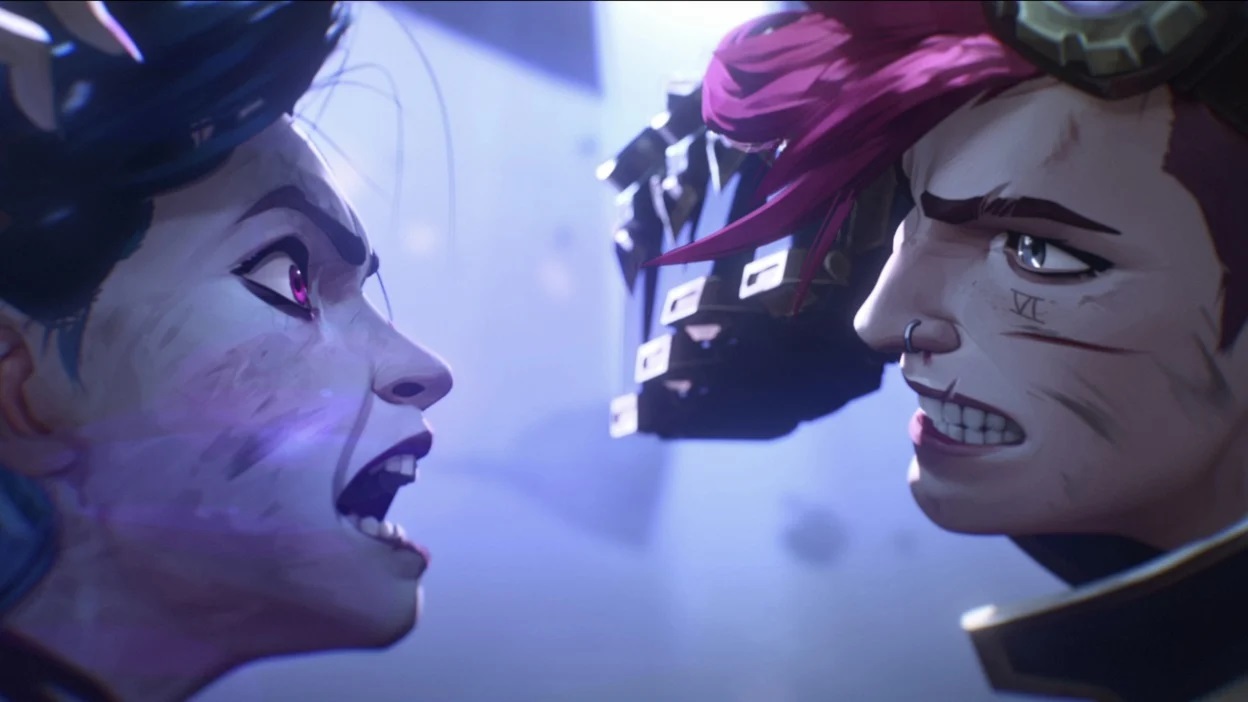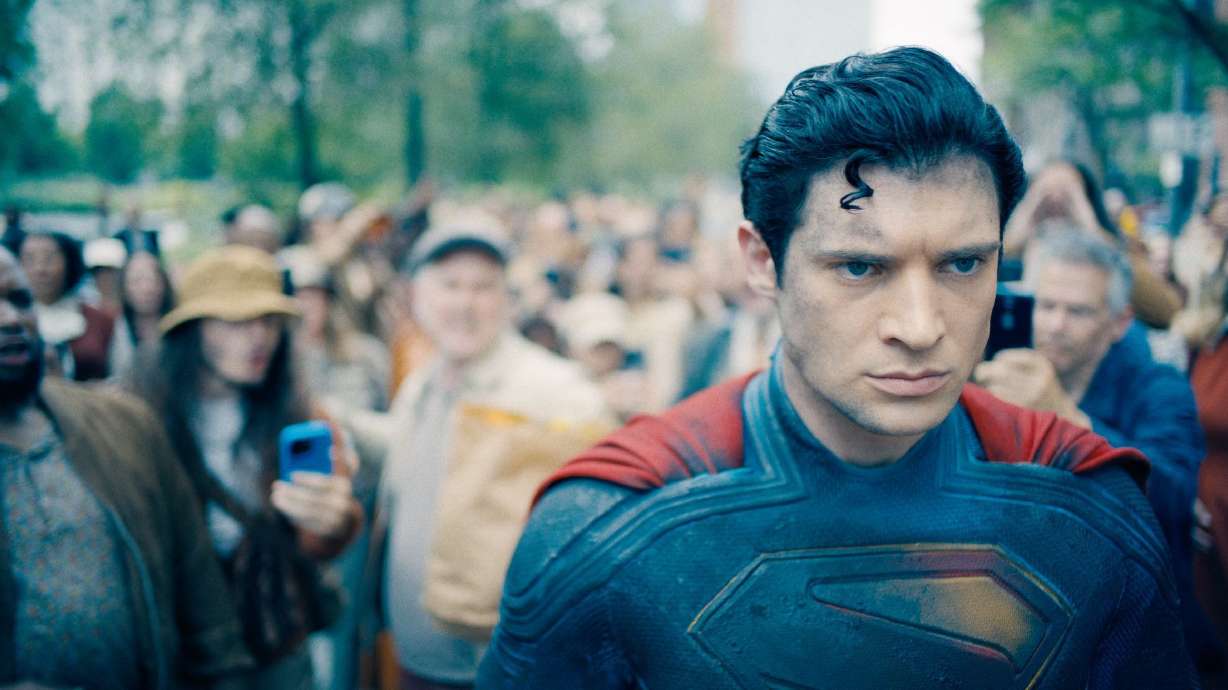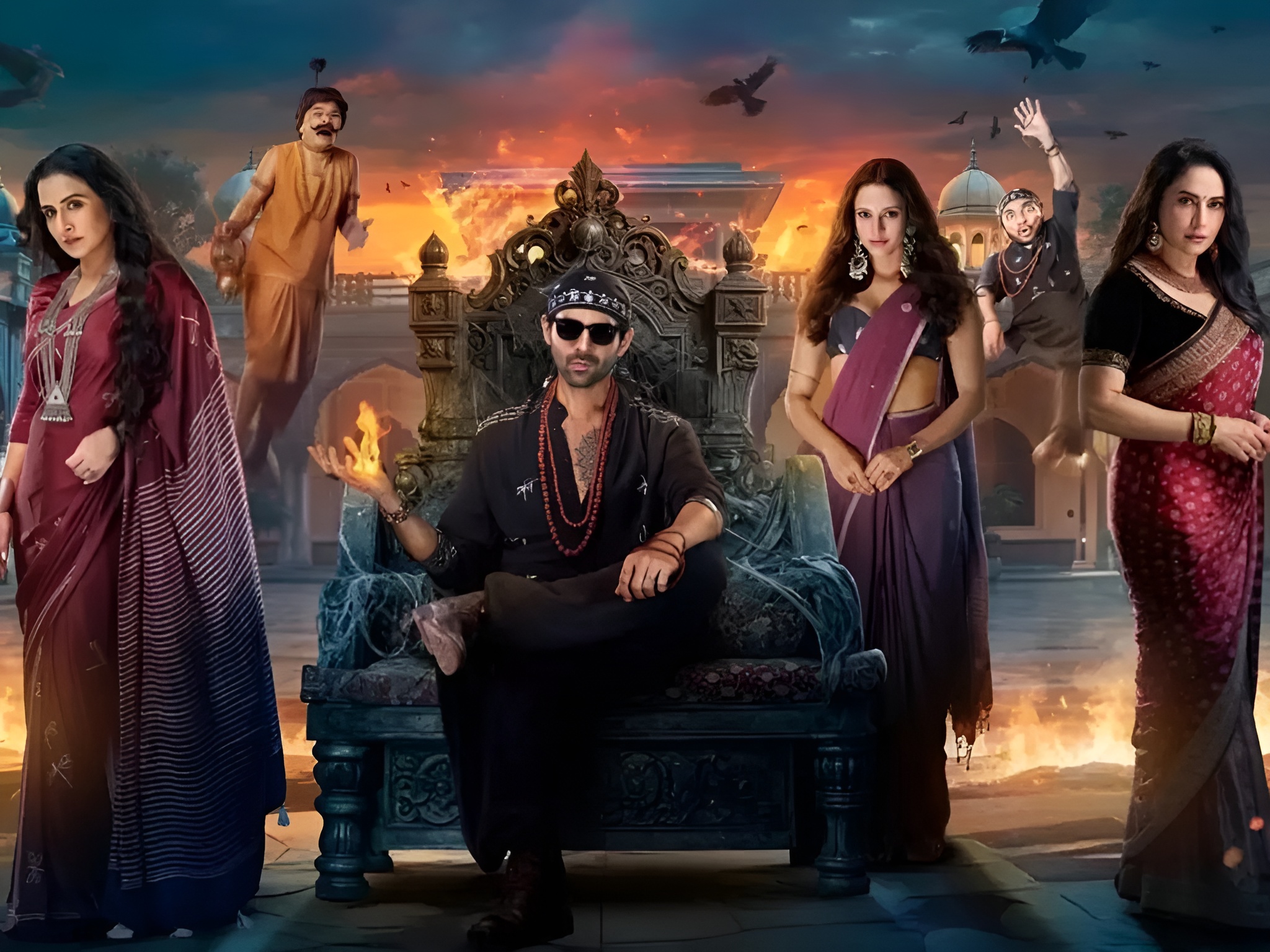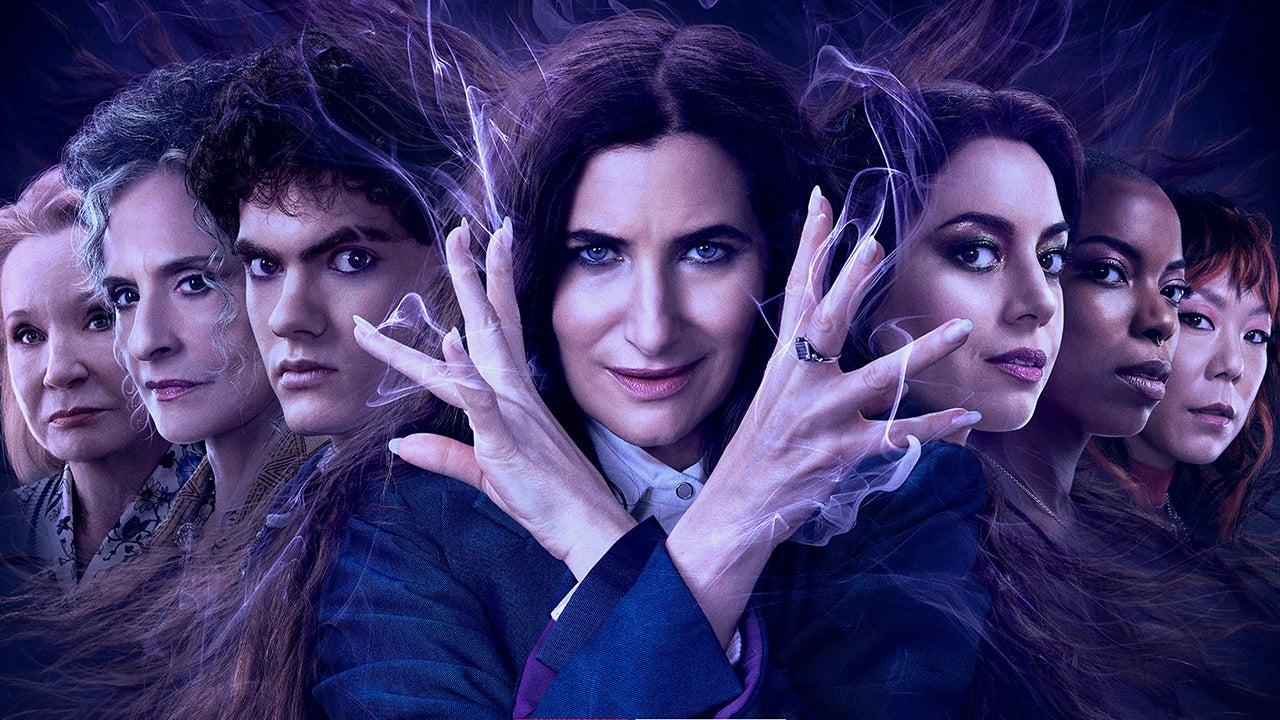Black Panther: Wakanda Forever could have easily buckled under the weight of the unfortunate circumstances that plagued its production. It was just about to go into production when, in August 2020, its star Chadwick Boseman passed away unexpectedly from cancer. Director Ryan Coogler, who was friends with Boseman, almost passed on the movie but decided to stick through and do his best to deliver a tribute to his departed friend. The unlikely lead actor, Letitia Wright, had to deal with the transition from playing a goofy side character to playing a conflicted, grief-stricken protagonist. (And then there’s all the anti-vax controversy she got into.)
Despite all these obstacles, Wakanda Forever delivers one of, if not the, best movies of Phase 4. It’s not a perfect movie, but it’s far better than anyone would expect, considering the circumstances.
One year after King T’Challa passed away due to an illness, Queen Ramonda (Angela Bassett) deals with several challenges to the Western overreach of Wakanda’s resources, mainly vibranium. At the same time, Shuri continues to bury herself in technological pursuits to escape her grief. Once a strange, wing-footed man named Namor (Tenoch Huerta Mejía) shows up in Wakanda and asks them to deliver an American scientist to him, events are set in motion that brings Wakanda, and Namor’s kingdom, Talocan, into conflict.
This is a very well-directed movie that immediately stands out from other recent MCU films due to Ryan Coogler’s deft touch. He leaves plenty of room for the actors to stand out, and several of them, most notably Angela Bassett, step up beautifully. Bassett gets to showcase her skills the most through powerful, raw speeches, but Wright also does well in portraying Shuri’s submerged grief, especially how it has muted her humor to a considerable extent. Danai Gurira gets to explore Okoye in an unfamiliar situation where she has to rediscover her purpose. Lupita Nyong’o’s Nakia is absent for most of the film’s first half but she gets to play an important role in the second half, and we find out at the end why she chose to step away from Wakanda. Winston Duke is great as M’Baku, but he takes a step back here compared to Black Panther, playing more of an older, mentor figure to the more vengeful Shuri.
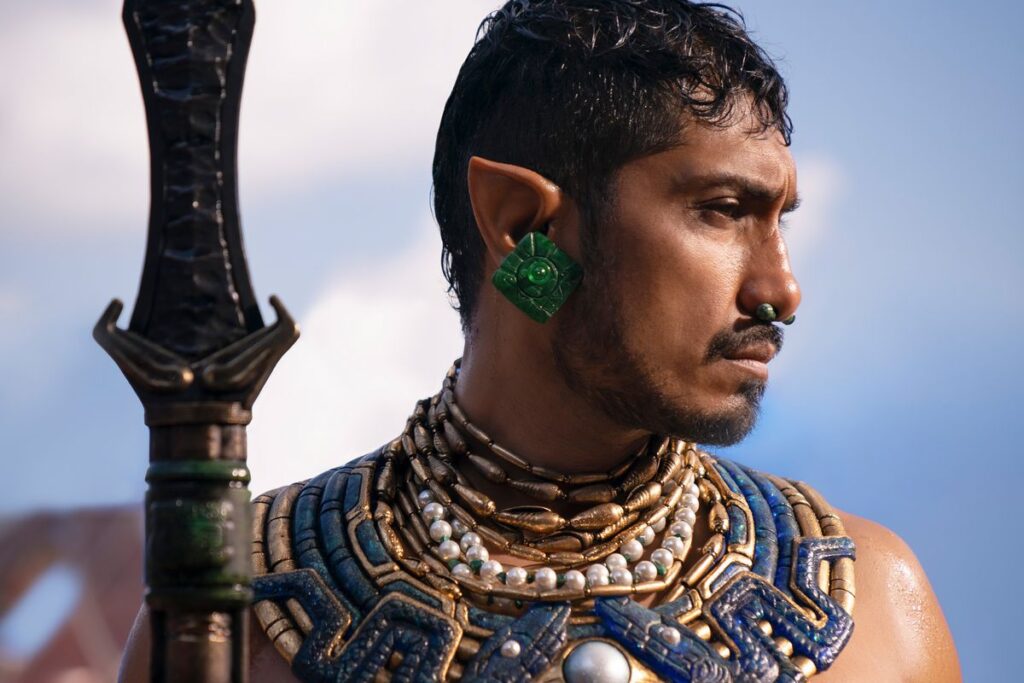
It would be remiss to not mention how great Tenoch Huerta is as Namor, and how well his story is portrayed in Black Panther: Wakanda Forever.
This is a much different Namor from the one in the comics, yet everything, from his backstory to his hatred of humans and his overprotectiveness of Talocan, fits beautifully into the context of this film. His power is portrayed very well, and even when he’s ambushed and working from a disadvantage, he’s a formidable force to behold.
The action in Wakanda Forever is a marked improvement over the last Black Panther film, especially compared to the cringy CGI final fight in the latter. Early one there’s a tense fight between Okoye and a group of Atlanteans that establishes the durability of Atlanteans in a fight, but this is not consistently maintained in later encounters. The final battle between Wakandans and Atlanteans is visually unique, but tactically it makes little sense.
There are several elements in Black Panther: Wakanda Forever that are there not necessarily because they are integral to the story, but because the movie is part of the larger world of the Marvel Cinematic Universe. Chief among them is Riri Williams (Dominique Thorne), who’s the ‘scientist’ that Namor is after. She’s actually a super-smart MIT student who not only invented a vibranium detector, but also a makeshift Iron Man suit. She’s integrated fairly well into the plot, and her presence isn’t as extraneous as, say, Everett Ross (Martin Freeman) is. Ross is mainly there to set up threads for the upcoming Thunderbolts movie. He is part of a sub-plot centered around a brewing clandestine conflict between Wakanda and the United States which unfortunately goes nowhere.
Lastly, the film opens and ends with tributes to Chadwick Boseman.
It’s hard to not get teary-eyed in both instances, especially in the ending where Shuri finally deals with her grief as Rihanna’s beautiful song for the film plays over the credits. The mid-credits scene may not sit well with everyone, but it’s a welcome bit of good news and hope after the grief and darkness dealt with throughout the film.
Black Panther: Wakanda Forever ends the contentious Phase 4 in style. Let’s hope that Phase 5 content can take the ball and lay it up for a slam dunk for the upcoming two Avengers films in Phase 6.
